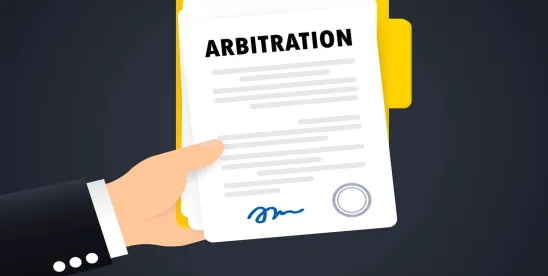By almost any measure, 2024 is a memorable year for employment and labor law — and it’s only halfway done. Our timely report, Mid-Year 2024: Now + Next, takes a closer look at the recent rules, regulations and rulings affecting employers today, the rest of the year and beyond.
Transcript
Welcome to Jackson Lewis’s podcast, We get work™. Focused solely on workplace issues, it is our job to help employers develop proactive strategies, strong policies, and business-oriented solutions to cultivate an engaged, stable, and inclusive workforce. Our podcast identifies issues that influence and impact the workplace and its continuing evolution and helps answer the question on every employer’s mind, how will my business be impacted?
No matter the month or year, employers can count on one thing, changes in workplace law. Having reached the midway point of the year, 2024 has proven to be no exception, with many significant changes and potential challenges ahead for employers. What follows is one of a collection of concise programs as We get work™; the podcast provides the accompanying voice of the Jackson Lewis 2024 Mid-Year Report, bringing you up-to-date legislative regulatory and litigation insights that are taking place now and what you can expect next in the second half of this year. We invite you and others at your organization to experience the report in full on JacksonLewis.com or listen to the podcast series on whichever streaming platform you turn to for compelling content. Thank you for joining.
Katharine C. Weber
Principal and Disability, Leave and Health Management Co-Leader
Hi, this is Katharine Weber and I’m joined today with Eric Magnus. Eric is a guru when it comes to all things wage and hour and all things class action. And Eric is here to talk to us a little bit about the transportation workers exception that’s included in the Federal Arbitration Act.
Now Eric, we had the Bissonnette case decided in April of this year that involved some folks who said, “I signed an arbitration agreement, but I am a transportation worker under the FAA and therefore you cannot make me arbitrate my claims.” Tell us a little bit about that case and what the court said.
Eric R. Magnus
Principal, Class Action and Complex Litigation Co-Leader, and Atlanta Office Litigation Manager
Had the outcome been different, it would have been very, very surprising, but the outcome of this case was, I would say, a reaffirmation of the Southwest Airlines v. Saxon decision the U.S. Supreme Court had issued a couple of years back.
There have been two major transportation worker exception decisions in the last three years, and it’s probably not the last one. The general issue here is the Supreme Court has been very clear in its directives over the last 15 years to employers that the FAA’s reach is very, very broad. Employers are allowed to have arbitration agreements that are covered by the FAA.
And what’s important about being covered by the FAA is that the FAA preempts a lot of the challenges that we used to see to arbitration agreements, like state law substantive and procedural unconscionability arguments, like a state that may say that a class action waiver is procedurally unconscionable. All of those sort of arguments are preempted by the FAA. So being covered by the FAA is very important for the enforceability of an arbitration agreement.
But of course, the transportation workers exception though, if that applies, basically scoops those workers outside the context of the FAA, right? That’s the import of the transportation worker exception: Anyone who is a “transportation worker” isn’t covered by the FAA. So obviously to your point, Katharine, the issue is always, what is a transportation worker? And that’s the issue in all these cases, including the recent Bissonnette case.
In the Bissonnette case, the defendant was a bakery. What the bakery wanted to argue is that we’re a bakery and therefore we’re not in the transportation industry. There’s no way Bissonnette could be covered by the transportation worker exception. Because we are not in the transportation industry, there is no way anyone that works for us could be covered by the transportation worker exception, period, end of story. They were arguing that the exception was designed for the “transportation industry.” Obviously, they would say that’s truck drivers, that’s railway employees, that’s people that work on airplanes, things that are obviously a part of the transportation industry — and the transportation industry doesn’t include a bakery.
WEBER
That sounds like a nice clean-cut test though, right?
MAGNUS
Sounds like a nice argument if it worked. But it didn’t work.
What the Supreme Court held is that whether an employee is a transportation worker is based on the employee or the class of jobs that the employees perform. It is not based on what the company does. What the Supreme Court held is that it doesn’t matter what the- business of the company is, what matters is whether the class of workers in question are performing transportation worker duties. And that has a definition under the FAA as well. We’re really talking about people who are functionally engaged, actively engaged in interstate commerce, bringing goods across borders via the channels of interstate commerce. You don’t have to actually be the person transporting the goods. And that was decided in the Saxon case, because that was about ramp agents working for Southwest Airlines — those people are clearly engaged in the process of the free flow of goods across state lines.
WEBER
So in Bissonnette, it sounds like the Supreme Court held that ’what matters is the class of workers, not the type or kind of company the workers are employed by. So, the Supreme Court did not go for the nice, clean, clear, easy to understand rule of if you’re a transportation industry employer, then that’s all that matters. And instead, now, we have to ‘ look at the type of work that the employees actually perform.
MAGNUS
Correct. You and I would like to argue that the test that the bakery was arguing for is clean cut. But it actually isn’t, because if the Court would have gone the other way, the debates would have become, well, “what is the transportation industry?” And so you could start making the type of arguments we hear Uber and Lyft make. All of those type of companies make arguments that “we’re not in the business of transporting people via ride shares. We’re just a tech app company that contracts with people who then do the ride sharing.”
So, you can get into all kinds of interesting discussions about whether the employer is in the transportation industry. That debate would have been probably equally as divisive.
You could make an argument based on revenue that we don’t have a single airline in the business of airlines. They’re all in the credit card industry. They make more from their credit card clubs than they do from the selling of actual airline tickets. This was one of the arguments that was made in the briefs in the Bissonnette case. I thought it was great. Even the most obvious quote “transportation industries” have arguments that they’re actually not in the transportation industry.
So, I don’t know that the Supreme Court would have saved any spilled ink by going the other way. We would have liked to argue it did. It’s probably easier to advise clients, but I don’t know that it wouldn’t have still caused massive amounts of litigation going forward.
WEBER
Now that we have the clarity that the Supreme Court brought to us in the Bissonnette case, what should employers be thinking about in light of this decision?
MAGNUS
The best advice is to ask yourself whether you have workers whom you want to be subject to arbitration agreements who could even conceivably be considered transportation workers. Like, Think about whether they’re somehow related to the transportation of goods across state lines. If you’ve even got that as a possibility, then the best advice I give clients is that you want to amend your arbitration agreements to have what I call a state law backdrop.
A state law backdrop is, a provision that says if the FAA does not apply, then you choose an employer friendly state law arbitration act that will apply and require arbitration. Every state in America has an arbitration act. You will want to include in your arbitration agreement one of the state arbitration acts that, at least in most states, will allow you to enforce the key provisions of your arbitration agreement.
It doesn’t give you the same sort of blanket preemption against every argument that a plaintiff’s lawyer can make to try and strike at the enforceability of the arbitration agreement. But it does give you a means of enforcing your arbitration agreement; so that even if the worker is deemed a transportation worker under the FAA, you still have the ability to move to compel arbitration and arbitrate and enforce all the key provisions of your arbitration agreement.
So, the best prospective advice I can give is to have basically the state law backup plan in case you have some worker that is construed to be a transportation worker. And when you are thinking about who might be considered a transportation worker under the FAA, construe that exception in the broadest way you possibly can so you can be sure to cover yourself.
WEBER
So Eric, what I heard from that is if there are employers in our audience who use arbitration agreements and they have employees who could arguably, possibly, ever be considered a transportation worker, then those employers should reach out to you. You can then help them take a good hard look at the different state arbitration acts and help them make good choices in the drafting of their arbitration agreements.
MAGNUS
That would be good advice, yes.
WEBER
Thanks, Eric. I think you’ve answered all my questions.
MAGNUS
Great. My pleasure.
Thank you for joining us on We get work™. Please tune into our next program where we will continue to tell you not only what’s legal, but what is effective.





 />i
/>i
